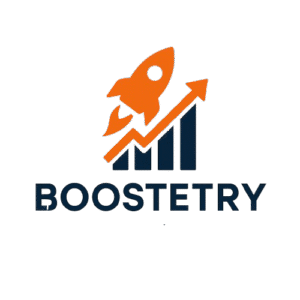On-page SEO optimization means all the actions and steps you take within your website to improve its visibility in search engines. It includes:
- Optimizing Content
- Adding Proper Keywords
- Using header tags (H1)
- Setting meta tags
- Image optimization
- Internal & External linking
When all the above steps are done properly, on-page SEO helps search engines understand your content and helps your site rank higher.

What is SEO? Top 05 Reasons For Your Website’s Success Through SEO
Table of Contents
Why is On-Page SEO Important in 2025?
In 2025, Google now focus more on user experience and content quality than ever before. Even if the backlinks on site are good, but on-page SEO is poor can keep your site from ranking in search engines.
Benefits of On-Page SEO Optimization
- Better search rankings
- Improved content relevance
- Higher organic traffic
- Better mobile and desktop user experience
- Lower bounce rate and higher engagement
Key Elements of On-Page SEO Optimization
Let’s talk about the most important factors step-by-step:
Title Tags
Your title tag is the most important factor; it must be a clickable headline shown on search engine result pages (SERPs). It must include your primary keyword, be under 60 characters in length, and attract clicks. Welcome to Our Site is not a clickable tag. On-Page SEO Optimization Guide for Beginners in 2025 is a clickable and attractive tag.
Meta Description
The meta description is a summary of your page in a short way that appears below the title in search results. Meta description should be under 160 characters, must include your target keyword, that shown on the search engine result page, and encourage people to visit your site.
Header Tags (H1, H2, H3)
Header tags create a complete structure or layout for your content and make it easy to read for both users and search engines.
- Use H1 tag for the main title (only once) in the content
- Use H2 tag for main sections in the content
- Use H3 tag for sub-sections in the content
If you are using keywords in headers, it improves SEO and user experience.
For Keyword research, Click Here.
Keyword Optimization
Your target keyword in the content, for “on-page SEO optimization,” should appear naturally in:
- The title
- The first 100 words
- At least one subheading tag
- Throughout the content that maintains a keyword density of 1-2%
- The URL
- The image alt texts
- Meta description
Use LSI keywords (Latent Semantic Indexing means related to main keywords) to make your content more contextually rich.
URL Structure
Keep URLs short, simple, and keyword-rich; never use digits in URLs https://yoursite.com/post?id=1234.
Internal Linking
When you are linking to other relevant pages/posts in the content on your website, it improves site structure and passes SEO value. Link to your “SEO Basics” or “Keyword Research” blog. Also use anchor texts like: “Learn more about technical SEO”.
External Linking
Link to a trusted website to back your data and improve your credibility in search engines. According to Google’s SEO Starter Guide, quality content and structure are key elements of SEO.
Image Optimization
Images should be:
- Compressed for faster loading
- Include alt text describing the image with keywords like (Infographic explaining on-page SEO optimization factors in 2025)
- Relevant to your content
Content Quality and Length
In 2025, Google prefers comprehensive, useful, SEO optimized, and original content. Make sure:
- Word count is 1000+ words in the content or blog post
- It solves a user’s problem. Through this, users stay more time on your site
- It’s easy to read and well-formatted for the user, and must be mobile-friendly
- Always avoid keyword stuffing
Mobile Responsiveness
The most important factor of SEO, your website must be mobile-friendly. Use tools like Google’s Mobile-Friendly Test to check whether the website is mobile-friendly or not.
Page Speed Optimization
If your website is slow, it is not an SEO-optimized website. Improve speed by:
- Compressing images
- Using a CDN (like Cloudflare)
- Minimising CSS/JS
- Using fast hosting platforms like Hostinger
Use Page Speed Insights to measure or track the performance of your website.
User Engagement Signals
Improve engagement by:
- Adding FAQs in the content
- Including CTA buttons, i.e, “Read More”, “Contact Us”, “Get A Quote”
- Using bullet points and images in the content
- Asking users to comment or share after reading the blog
Tip: Use SEO Plugins (For WordPress Users)
Online Tools like Yoast SEO or Rank Math help you optimize each post with:
- Keyword focus checks
- SEO score
- Readability analysis
- Suggestions for improvements to make SEO optimized content
Best Practices For On-Page SEO Optimization
Before publishing the content, always check below factors:
- Title includes keyword
- Meta description is short
- Headers are structured
- Keyword density is 1–2%
- URLs are clean and simple
- Internal links added
- External links added
- Images with alt text used
- Mobile responsiveness
- Page speed optimized
What is the difference between on-page and off-page SEO?
On-page SEO refers to changes made inside your site (content, structure), while off-page SEO focuses on external factors like backlinks.
How often should I update my on-page SEO?
Regularly, at least every 3 to 6 months or whenever Google updates its algorithm.
Can I do on-page SEO without technical skills?
Yes! Most tasks are content-based. WordPress users can use plugins like Yoast or Rank Math to make it easier.
How do I know if my on-page SEO is working?
Use tools like Google Search Console and Google Analytics to track rankings, traffic, and engagement.
Does word count affect on-page SEO?
Yes. While quality is more important, longer posts (1000–2000 words) tend to perform better in search rankings.
Conclusion
On-page SEO optimization is the main foundation of successful website visibility in search engines. Whether you are a blogger, business owner, content creator, or digital marketer, SEO optimization can help you:
- Rank higher on Google.
- Get more organic traffic.
- Improve your website experience.
SEO is not a trick; it’s about creating and optimizing valuable, well-structured, and accessible content.
To get SEO Services
